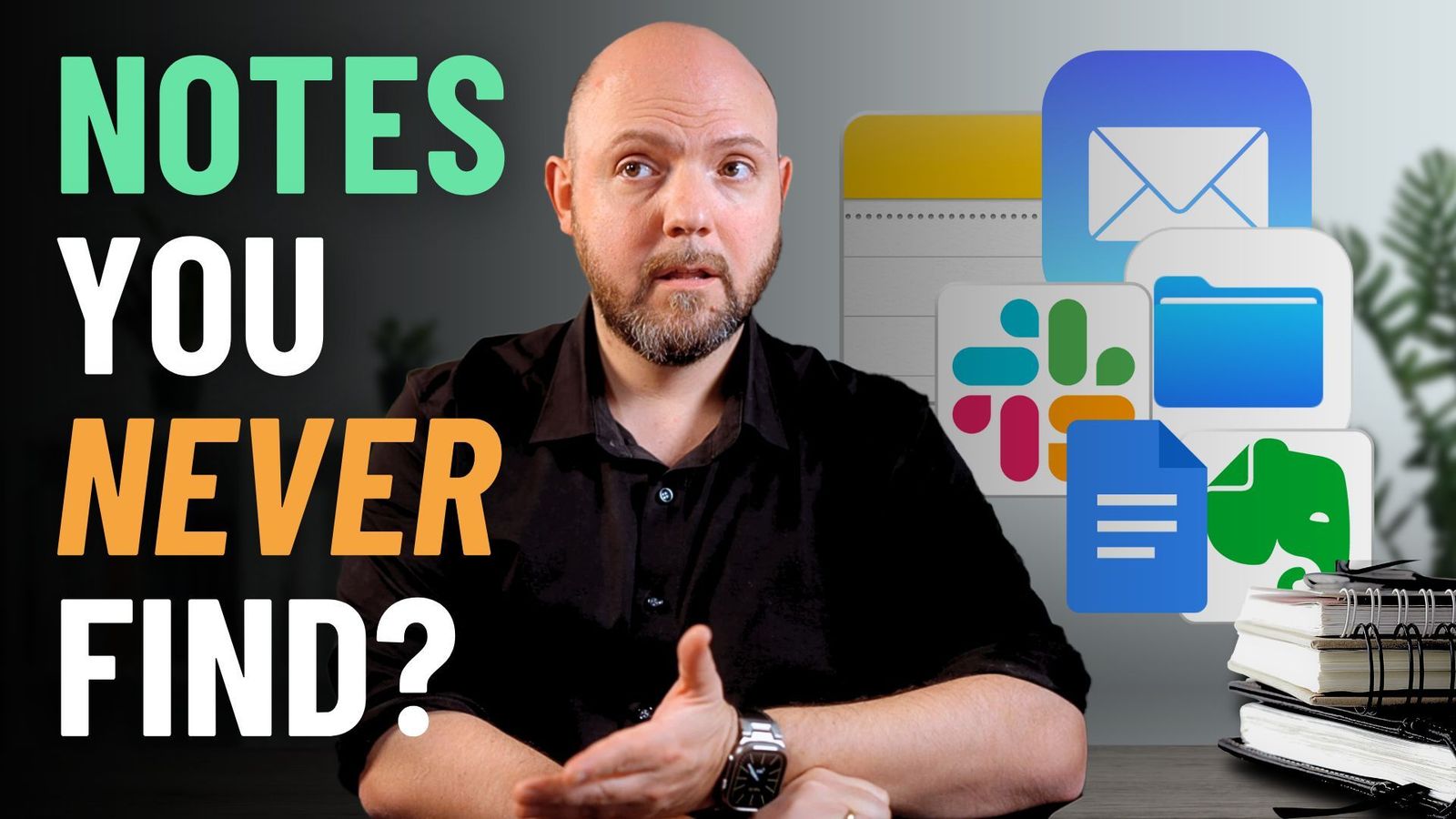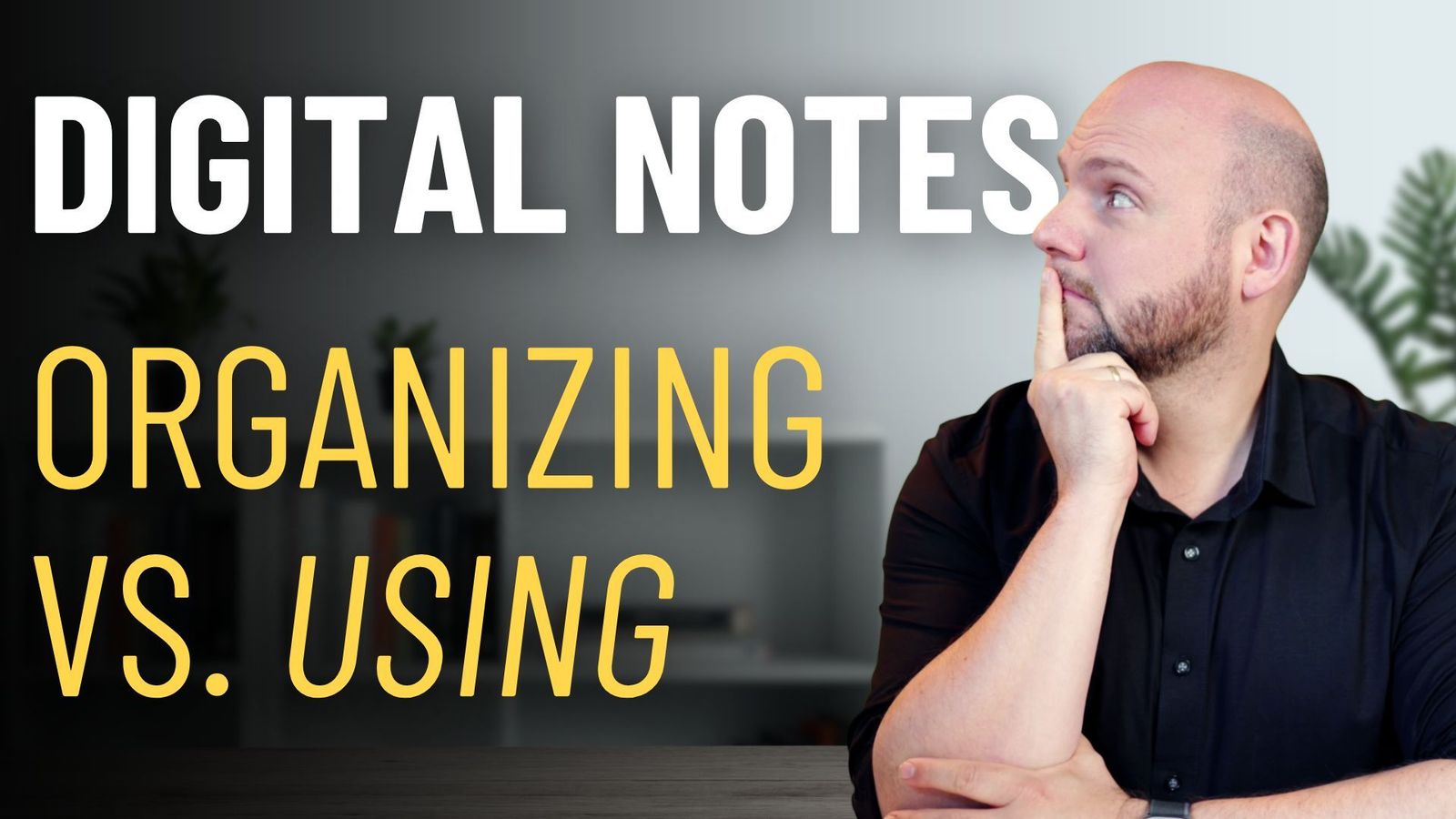Most Busy Professionals struggle with scattered notes, endless app switching, and a constant feeling of disorganization. Research shows knowledge workers switch between 11 apps over 30 times per hour—just to manage their notes and tasks. That’s 240 interruptions per day, leading to cognitive overload and lost productivity. But at the root of this chaos is a surprisingly simple issue: a misunderstanding of what a note truly is.
The Hidden Cost of Scattered Notes
Think about your typical day. You might jot down a key point from a client meeting in your notes app, save an insightful quote from an article in a read-it-later tool, capture an idea during a brainstorming session on your tablet, and flag a voice message from a colleague with important updates.
Different tools, different contexts—but are they really different kinds of notes?
Most systems treat them separately, creating silos. Meeting notes go one place. Tasks another. Ideas, project updates, and client feedback? All scattered across multiple platforms. The result? You spend precious time hunting for the right piece of information, triggering interruptions that derail your focus and productivity.
This isn’t just inefficient—it’s mentally exhausting. According to research from UC Irvine, every interruption costs you about 23 minutes to regain full focus. Multiply that by the dozens of context switches you make daily, and it’s clear how much time is being wasted.
The truth is, the problem isn’t you. It’s the lack of a clear, unified foundation for handling information and action.
Why Redefining Notes Is Essential
In ICOR®, a note isn’t just a place to store facts—it’s the starting point of your entire productivity system. Notes are how information from both your Outer World (emails, articles, meetings) and Inner World (ideas, insights, reflections) enters your system.
And more importantly, notes are not just about information. They’re also about action.
This distinction—between information and action—is foundational. Whether you’re capturing a key stat, a decision from a meeting, or a follow-up task, each of these plays a different role in moving your work forward.
When you blur the line between information and action, you lose track of next steps. Tasks get buried inside meeting summaries. Key decisions hide within research. And valuable insights disappear into the noise.
Professionals are wasting over 200 hours per year searching for content they’ve already captured. This isn’t a capture problem—it’s a clarity problem.
The ICOR® Definition of a Note
To solve this, ICOR® introduces a precise, actionable definition:
A note is a written record that captures important information, decisions, insights, or action items from various business-related activities.
Let’s break this down:
- Written Record: This includes typed text, sketches, audio, screenshots—anything that can be stored digitally.
- Captures Four Key Elements:
- Information: Facts and details to remember
- Decisions: Conclusions or choices made
- Insights: Realizations and connections
- Action Items: Tasks and next steps
And all within a business context—supporting communication, recall, and execution.
Common examples include:
– Meeting Minutes with discussions and action items
– Task Lists with clear deadlines
– Client Notes tracking feedback and expectations
– Research Notes for decision-making
– Project Notes updating status and progress
– Brainstorming and Idea Notes
– Training and Workshop Notes
– Conference Notes and Networking follow-ups
– Personal Reflections on growth and challenges
What sets ICOR® apart is the understanding of two distinct sources:
- Outer World: Information that originates outside of you—emails, podcasts, articles.
- Inner World: Information that originates from within—your thoughts, reflections, decisions.
Knowing the source of a note influences how you process it and which tools and workflows you apply to it.
Put This into Practice
Everything changes when you apply this lens. You stop treating all notes the same way. You start capturing with intention. You build a system that not only stores information but actively moves your work forward.
This week, try this:
– Review your existing notes.
– Identify which ones contain action items.
– Separate Outer World content from Inner World reflections.
– Categorize your notes based on type: meetings, tasks, research, ideas, etc.
Want to go deeper? Learn how this foundational concept fits into a complete productivity system built for Busy Professionals.
We invite you to join the Paperless Movement® Membership, where you’ll gain access to the full ICOR® framework and Courses on Note-Taking, Personal Knowledge Management, Task Management, and Project Management.
Or start with the Email Management Course to eliminate inbox chaos and integrate your email directly into your productivity system.



